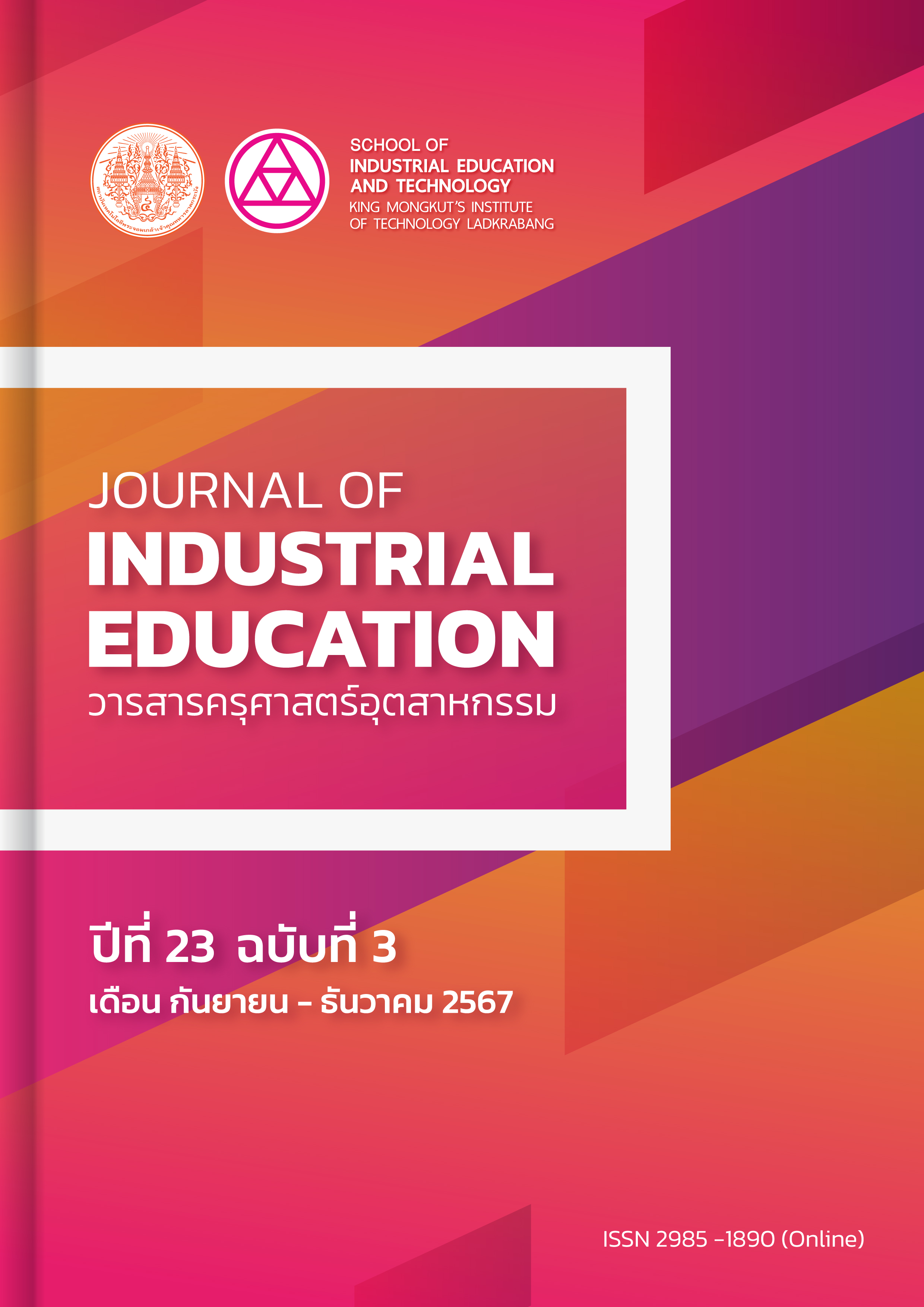METAVERSE: THE FUTURE OF PRODUCT DESIGN WITH NEW INNOVATIONS AND OPPORTUNITIES IN THE DIGITAL AGE
DOI:
https://doi.org/10.55003/JIE.23301Keywords:
Metaverse, Product design, Digital ageAbstract
The Metaverse is evolving into a highly immersive and interactive digital ecosystem, fundamentally transforming how products are designed. This article examines the role of the Metaverse in shaping future practices for product design, emphasizing its potential for co-creation, rapid prototyping, and user-centric customization in virtual environments. Through an analysis of emerging trends and case studies, the article explores how the Metaverse can redefine the product design process, expanding the possibilities of design and creating new opportunities for interaction and personalization. This discussion aims to provide designers with up-to-date insights into leveraging the Metaverse to drive innovation in product design, ultimately reshaping consumer experiences in the digital era.
References
Chu, C. H., & Kao, E. T. (2020). A comparative study of design evaluation with virtual prototypes versus a physical product. Applied Sciences, 10(14), 1-20.
Deng, D., Bujic, M., & Hamari, J. (2023). Understanding multi-platform social VR consumer opinions: A case study in VRChat using topics modeling of reviews. In Y. Tu & M. Chi (Eds.), E-Business. Digital Empowerment for an Intelligent Future (WHICEB 2023) (Lecture Notes in Business Information Processing, Vol. 481; pp. 35-46). Springer.
Gonsher, I., Rapoport, D., Marbach, A., Kurniawan, D., Eiseman, S., Zhang, E., Qu, A., Abela, M., Li, X., Sheth, A. M., Chen, A., padhyayula, R., Li, S., Bansal, S., Zhao, I., Chen, G., Tan, C., & Lei, Z. (2023). Designing the metaverse: A study of design research and creative practice from speculative fictions to functioning prototypes. In K. Arai (Ed.), Proceedings of the Future Technologies Conference (FTC) 2022 (Vol. 2) (FTC 2022- Lecture Notes in Networks and Systems) (Vol. 560; pp. 561-573). Springer.
Lin, J., Li, Q., Wang, C., & Hu, Z. (2024). Product development and design framework based on interactive innovation in the metaverse perspective. Applied System Innovation, 7(4), 1-23.
MaryWolf01. (2021). 5 VRChat neko avatars worlds. https://www.youtube.com/watch?v=cefmvKBYwIU.
Morrison, C. (2019). How Roblox avoided the gaming graveyard and grew into a $2.5B company. https://techcrunch.com/2019/07/11/how-roblox-avoided-the-gaming-graveyard-and-grew-into-a-2-5b-company/.
Pastor, J. (2023). What is Decentraland? https://www.stadioplus.com/post/what-is-decentraland.
Stemasov, E., Demharter, S., Rädler, M., Gugenheimer, J., & Rukzio, E. (2024). pARam: Leveraging parametric design in extended reality to support the personalization of artifacts for personal fabrication. In F. F. Mueller, P. Kyburz, J. R. Williamson, C. Sas, M. L. Wilson, P. T. Dugas, & I. Shklovski (Eds.), Proceeding of CHI '24: CHI Conference on Human Factors in Computing Systems (pp. 1-22). Association for Computing Machinery (ACM).
Sukkong, P. (2021). Facebook launches 'Horizon Worlds', a Meta version of the created universe, for the general public to play: Starting with America and Canada - the first two countries. https://thestandard.co/facebook-launched-horizon-worlds/. (in Thai)
Zhang, X., & Cheng, H. (2024). Interactive prototype development and evaluation of low-carbon products through virtual reality technology. International Journal of Low-Carbon Technologies, 19, 2725-2732.
Downloads
Published
How to Cite
Issue
Section
License
Copyright (c) 2024 Journal of Industrial Education

This work is licensed under a Creative Commons Attribution-NonCommercial-NoDerivatives 4.0 International License.
"The opinions and contents including the words in papers are responsibility by the authors."
"ข้อคิดเห็น เนื้อหา รวมทั้งการใช้ภาษาในบทความถือเป็นความรับผิดชอบของผู้เขียน"



